Manage all aspects of compliance with integrated solutions
WHS Monitor provides integrated business solutions addressing Safety, Quality, Environment and Enterprise risk from a single platform
WHS Monitor caters for all businesses with plans to suit any size.
WHS Monitor is not limited to private companies
WHS Monitor is flexible enough to provide end-to-end compliance solutions for every industry.
WHS Monitor is a flexible software that can be used for any number of compliance related functions
The Essential Safety Package is designed for SMB organisations up to 50 people.
The Full Compliance package is designed for organisations larger that 50 people, or organisations with detailed compliance requirements.
A standalone chemical management solution that can take care of your chemical inventory and chemical risk compliance
WHS Monitor offer a range of services to get you compliant sooner and stay compliant longer.
Read how WHS Monitor solutions solve compliance for a diverse range of businesses
WHS Monitor provides integrated business solutions addressing Safety, Quality, Environment and Enterprise risk from a single platform
Effectively manage work health and safety by centralizing processes such as incident reporting, risk assessment, and compliance management to ensure a safe working environment
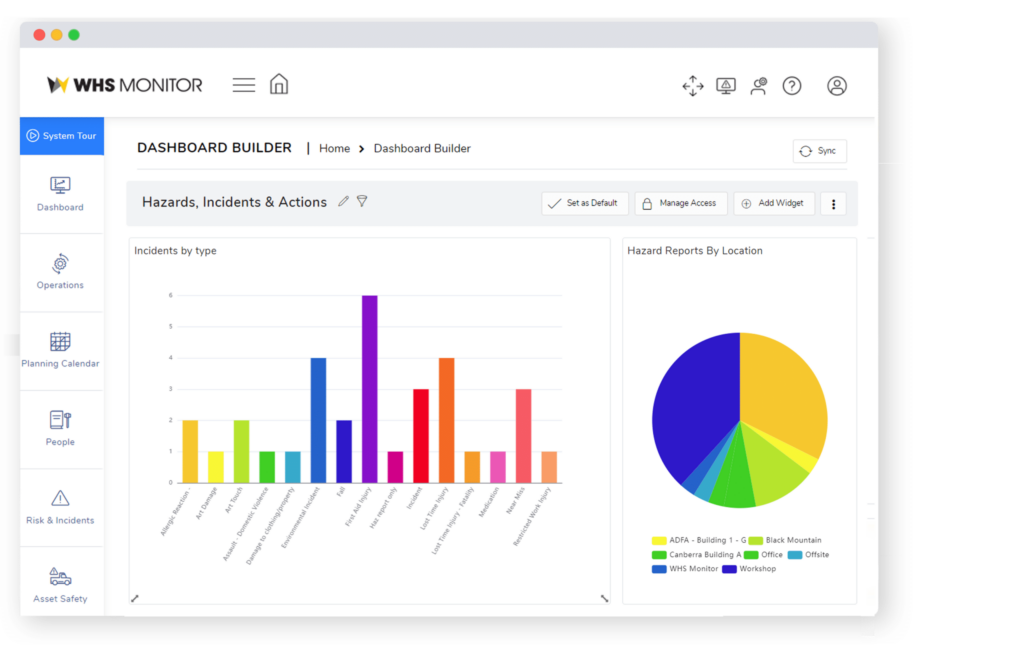
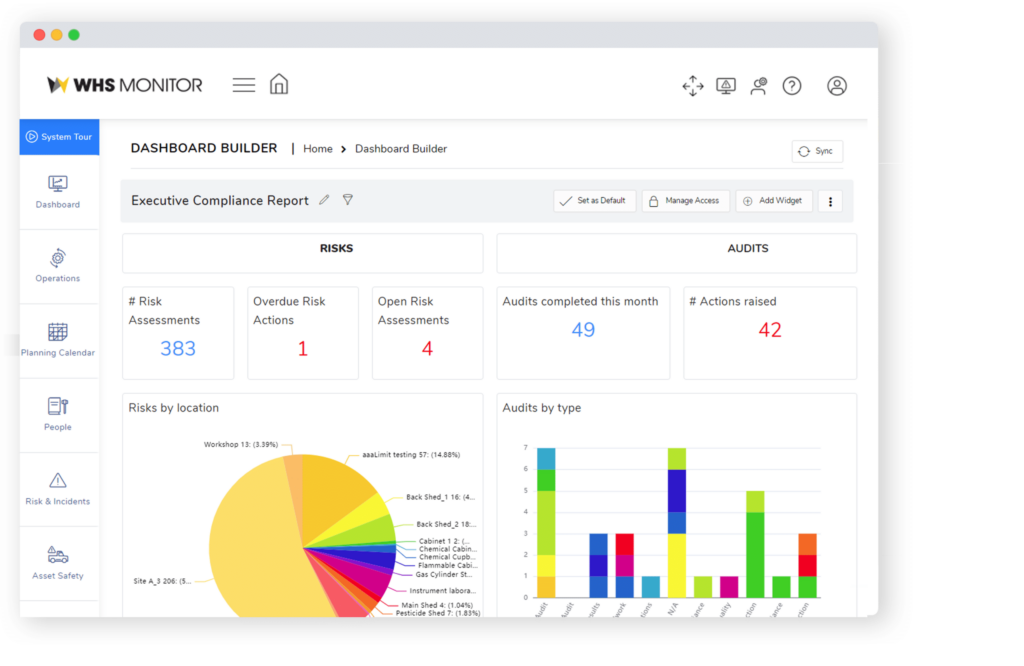
WHS Monitor’s HSE Management Software (or EHS Management software, SHE Management Software) that assists organizations to effectively manage their environmental, health, and safety processes.
It provides a centralized solution to manage and report on all required EHS-related activities, including compliance management, incident reporting and investigation, risk assessment, training management, audits, and performance monitoring
WHS Monitor enables organizations to assess and manage risks associated with their operations, facilities, and environmental impact. This includes conducting risk assessments, identifying hazards, and implementing controls to mitigate health, safety and environmental risks.
WHS Monitor allows for the reporting, tracking, and investigation of incidents such as accidents, injuries, near misses, and environmental spills. It helps in identifying root causes and implementing corrective actions to prevent future occurrences.
WHS Monitor helps organizations ensure compliance with relevant health, safety, and environmental regulations, standards, and permits. It includes modules for managing documentation, permits, audits, and inspections.
WHS Monitor facilitates the management of employee training programs, certifications, and qualifications related to health, safety, and environmental requirements.
WHS Monitor provides tools for promoting a positive safety culture within the organization, including features for engaging employees, conducting safety observations, and encouraging proactive safety behaviours.
WHS Monitor allows organizations to track and manage environmental aspects such as air emissions, water discharges, waste generation, and chemical usage. It also includes features for managing environmental permits, reporting emissions data, and generating environmental management plans.
WHS Monitor offers capabilities for managing all HSE-related documents, such as policies, procedures, permits, and regulatory documents, ensuring they are up-to-date and accessible to relevant stakeholders.
WHS Monitor provides customizable dashboards and reporting tools for visualizing key performance indicators (KPIs), trends, and metrics related to HSE performance. This enables stakeholders to make informed decisions and track progress towards HSE goals in real-time.
WHS Monitor offers mobile applications and responsive web interfaces, allowing users to access and update health and safety information from anywhere, using smartphones or tablets, including in areas with low or no reception. This facilitates real-time incident reporting, inspections, and compliance tasks, improving efficiency and responsiveness.
WHS Monitor supports API to connect with other systems such as HR, payroll, and ERP (Enterprise Resource Planning) systems. This streamlines data exchange, eliminates duplicate data entry, and ensures consistency across organizational processes.
WHS Monitor’s automation features help streamline health and safety processes by automating repetitive tasks, such as notifications, escalations, and workflow approvals. This improves efficiency, reduces administrative burden, and ensures timely completion of health and safety activities.
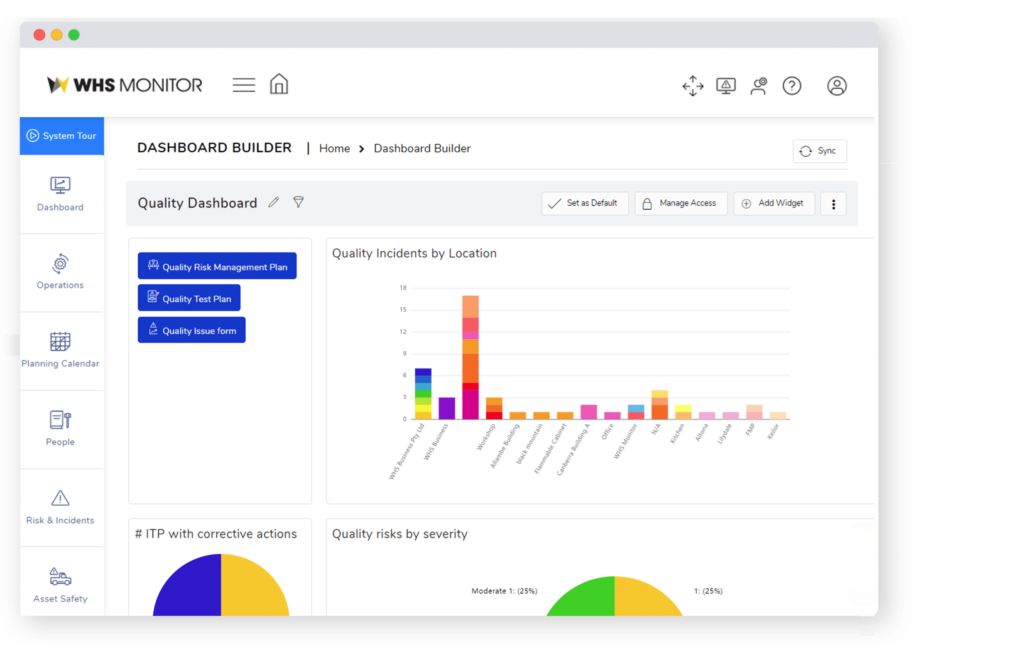
Provide safe and quality services or solutions by centralising and integrating quality processes like document control, non-conformance management, audits, corrective actions, and supplier quality management.
Allows organizations to record, investigate, and track instances of non-conformance or deviations from quality standards. It helps identify root causes, implement corrective and preventive actions (CAPA), and prevent recurrence of quality issues.
Facilitates the planning, scheduling, execution, and reporting of internal and external audits to assess compliance with quality standards, regulations, and organizational requirements. It streamlines audit processes and ensures transparency and accountability.
Enables organizations to systematically identify, analyze, and address the root causes of quality issues to prevent their recurrence. It helps manage corrective actions to address existing problems and preventive actions to mitigate potential risks.
Supports the identification, assessment, and mitigation of risks that could affect product quality, safety, or compliance. It helps prioritize risk mitigation efforts and ensures that risks are effectively managed throughout the organization.
Supports the management of changes to products, processes, and systems while ensuring that changes are properly evaluated, authorized, and implemented. It helps organizations maintain control over change processes and minimize associated risks.
Helps organizations assess and monitor the quality performance of their suppliers through supplier evaluations, audits, and corrective actions. It ensures that suppliers meet quality requirements and contribute to overall product quality and customer satisfaction.
Facilitates the management of employee training programs to ensure that personnel are adequately trained and competent to perform their assigned tasks. It tracks training requirements, schedules training activities, and records training completion for compliance purposes.
Provides a centralized repository for managing quality documents, such as policies, procedures, work instructions, and specifications. It ensures document version control, access control, and traceability to support compliance and standardization
Manage environmental, health, and safety responsibilities effectively. Centralise tasks such as incident reporting, compliance tracking, and risk assessment to promote regulatory compliance and mitigate risks.
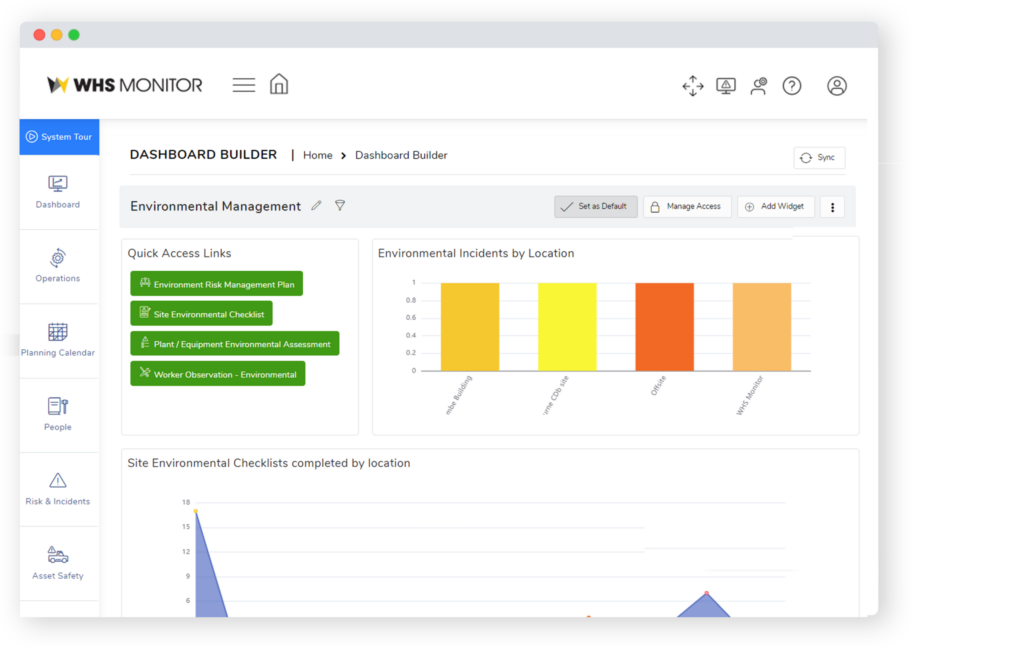
Allows for the monitoring and measurement of key environmental performance indicators (KPIs) such as energy consumption, water usage, waste generation, greenhouse gas emissions, and air emissions. This data can help identify areas for improvement and support sustainability initiatives.
Helps organizations manage their waste streams more effectively by tracking waste generation, disposal methods, recycling efforts, and regulatory reporting requirements. It may also include features for optimizing waste management processes to minimize environmental impact and costs.
Provides tools for identifying sources of pollution and implementing measures to prevent or control environmental pollution. This may involve implementing pollution control technologies, managing chemical usage, and reducing emissions.
Supports the identification, assessment, and management of environmental risks associated with the organization's activities, products, and services. It helps prioritize risk mitigation efforts and ensure proactive management of environmental hazards.
Facilitates the conduct of environmental audits, inspections, and assessments to evaluate compliance with environmental requirements and identify areas for improvement. It may include features for scheduling audits, conducting inspections, and tracking corrective actions.
Assists in the preparation and reporting of sustainability performance data to stakeholders, including environmental impact assessments, carbon footprint reports, and sustainability disclosures. This helps organizations demonstrate their commitment to sustainability and transparency.
Supports initiatives to reduce energy consumption and carbon emissions by tracking energy usage, identifying energy-saving opportunities, and calculating carbon footprints. It may include features for setting energy reduction targets and monitoring progress towards goals.
Extends environmental management efforts to the organization's supply chain by assessing and managing the environmental impacts of suppliers and subcontractors. This helps promote sustainability throughout the supply chain and reduce risks associated with environmental non-compliance.
A SMS, or Safety Management System, can also be known as:
is a systematic approach to managing safety, including the necessary organizational structures, accountabilities, policies, and procedures. It’s designed to proactively identify, assess, and mitigate risks within an organization to ensure the safety of personnel, assets, and the environment.
WHS Monitor provides a Safety Management Software designed to assist organizations in effectively managing work health and safety. It centralizes processes such as incident reporting, risk assessment, and compliance management to ensure a safe working environment. By providing tools for monitoring, analyzing, and improving safety processes, WHS Monitor helps organizations to mitigate risks, reduce accidents, and promote a culture of safety.
An SMS (Safety Management System), can also be known as:
is a type of software designed to assist organizations in managing their safety-related processes and activities. It provides a centralized platform for various safety-related tasks, including incident reporting and investigation, risk assessment, safety audits, compliance management, training management, and safety performance monitoring.
An EHS Management System (Environment, Health and Safety Management System), also called:
is a framework used by organizations to manage and continuously improve their environmental, health, and safety performance. EHS Management Systems are designed to systematically identify, assess, control, and monitor risks and hazards associated with an organization’s activities, products, and services.
– WHS Monitor provides an EHS Management Software (or SHE Management software, HSE Management Software) that assists organizations to effectively manage their environmental, health, and safety processes. It provides a centralized solution to manage and report on all required EHS-related activities, including compliance management, incident reporting and investigation, risk assessment, training management, audits, and performance monitoring.
EHS management software (Environment, Health, and Safety management software), also called: also called:
is a specialized type of software designed to help organizations effectively manage their environmental, health, and safety programs. It provides a centralized platform for various EHS-related activities, including compliance management, incident reporting and investigation, risk assessment, training management, audits, and performance monitoring.
An HSEQ Management System (Environment, Health, Safety, and Quality Management System), sometimes also called
is a comprehensive framework used by organizations to manage and integrate their environmental, health, safety, and quality processes. It combines elements of Environmental Management Systems (EMS), Work Health and Safety Management Systems (WHSMS), and Quality Management Systems (QMS) into a single unified approach.
The HSEQ Management System is designed to ensure that an organization’s activities, products, and services meet regulatory requirements, industry standards, and stakeholder expectations while minimizing environmental impact, ensuring worker safety, and delivering high-quality products and services.
– WHS Monitor is provides a complete HSEQ management software (or QHSE Management system, SHEQ Management system, EHSQ Management system) designed to help organizations effectively manage and integrate all environmental, health, safety, and quality processes in a central platform. WHS Monitor simplifies the management and reporting of HSEQ, including compliance management, incident reporting and investigation, risk assessment, training management, audits, and performance monitoring.
ESG management software, or Environmental, Social, and Governance management software, is a type of software designed to help organizations monitor, track, and report on their performance in these three key areas: environmental impact, social responsibility, and corporate governance.
ESG management software typically offers features such as data collection and analysis, reporting tools, performance tracking, benchmarking against industry standards or regulations, and integration with other systems such as financial or HR software.
– WHS Monitor helps companies streamline their ESG-related activities, improve transparency and accountability, identify areas for improvement, and demonstrate their commitment to sustainability and responsible business practices to stakeholders such as investors, customers, employees, and regulators.
A Quality Management System (QMS) is a set of processes, policies, procedures, and resources that an organization establishes to ensure that its products or services consistently meet or exceed customer requirements and regulatory standards. The primary goal of a QMS is to enhance customer satisfaction by delivering products or services that meet quality expectations while also continuously improving internal processes.
-WHS Monitor helps organizations to centralize quality processes like document control, non-conformance management, audits, corrective actions, and supplier quality management. It ensures compliance with standards, regulations, and customer requirements, driving continuous improvement and enhancing overall performance.
Quality Management Software (QMS) is a type of software solution designed to help organizations effectively manage and streamline their quality processes and procedures. It provides a centralized platform for implementing and maintaining a Quality Management System (QMS) by automating various quality-related tasks, documentation, and workflows.
Comprehensively identify, assess, mitigate, and monitor risks across all facets of an organisations risk and compliance obligations.
WHS MONITOR BENEFITS
WHS Monitor modules are the most advanced on the market with a long list of standard inclusions as well as integrations for automation between modules
The incident management module automatically links all relevant staff, risk and asset information to enable single point management of all supporting WHS records.
TESTIMONIALS
See how WHS Monitor is improving the OHS management practices of businesses like yours.
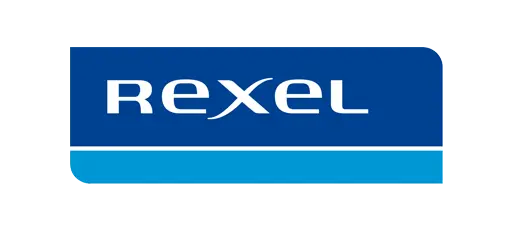

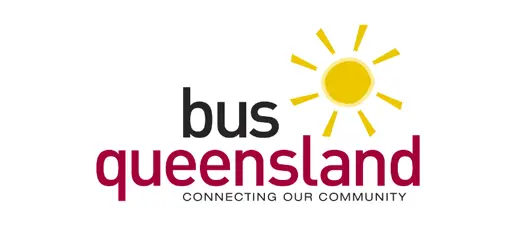











To assist you further, please enter your details below.
*Fields marked with an asterisk are compulsory
We want all WHS Monitor users to get the most out of the system, so we support you at every step.